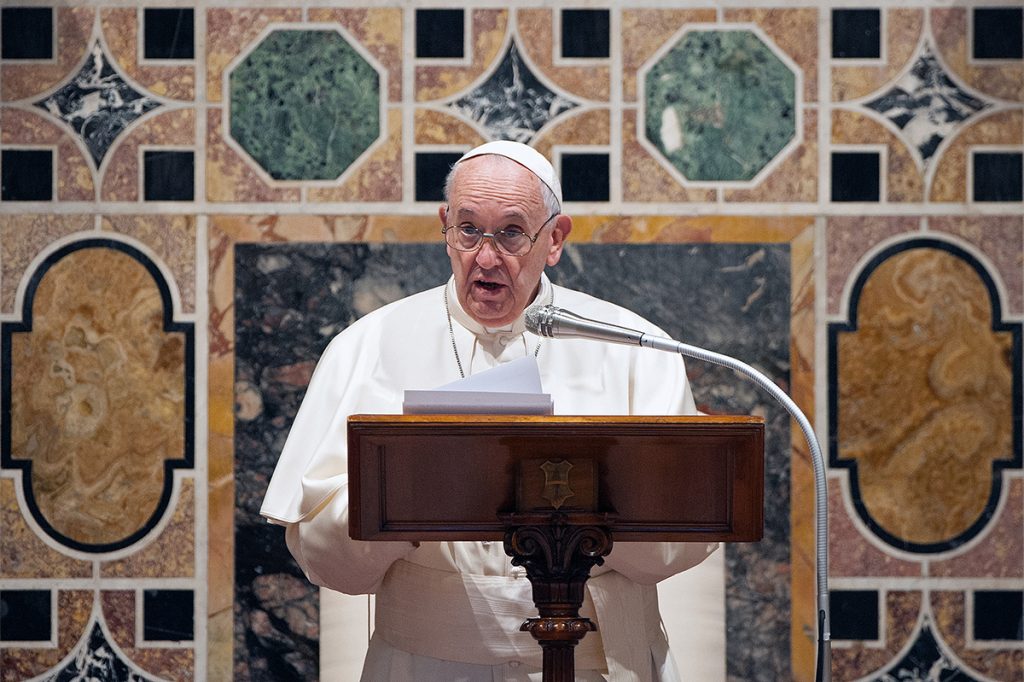In a historic move, Pope Francis is slated to address the leaders of the Group of Seven (G7) nations on the pressing topic of artificial intelligence (AI) during their summit in the scenic Puglia region of southern Italy. This unprecedented participation marks a significant milestone, as it signifies the first time a pontiff engages in high-level discussions concerning AI.
The pontiff’s interest in this matter was sparked by a widely circulated “deep fake” image portraying him donning a fashionable white puffer jacket, created using AI technology. Acknowledging the potential risks associated with AI, Pope Francis is steadfast in his determination to ensure its development remains in harmony with human values and devoid of detrimental repercussions.
Drawing from his background as a former chemist, Pope Francis embraces technological advancements, including AI, for the myriad opportunities they offer. However, he remains keenly aware of the perils posed by unchecked technological progress. In a statement issued last year, he cautioned against the emergence of a “technological dictatorship” and voiced concerns about AI-driven weapons systems, surveillance societies, and electoral manipulation.
To address these concerns, the Vatican has been actively advocating for an ethical framework to govern the development and deployment of AI. Initiatives like the “Rome Call for AI Ethics,” championed by the Pontifical Academy for Life, emphasize key principles such as transparency, inclusivity, accountability, and fairness. This initiative has garnered widespread support from major tech corporations, governments, and religious leaders globally.
During the G7 summit, Pope Francis is poised to urge world leaders to collaborate on establishing regulations to mitigate the risks associated with AI and prevent its harmful misuse. He has previously called for the adoption of a “binding international treaty” to promote the ethical advancement of AI. Notably, the European Union has already taken steps to legislate AI, while bipartisan efforts in the United States indicate growing momentum toward federal regulation.
Pope Francis’ decision to engage in the AI discourse underscores his broader vision of the Church’s role in addressing contemporary challenges. He perceives AI as an integral component of the transformative changes unfolding in the 21st century and asserts that the Church must play a leading role in deliberations concerning its ethical implications.
Father Paolo Benanti, a Franciscan friar and AI expert collaborating with the Vatican, highlights Pope Francis’ focus on the societal dimensions of AI and its impact on global harmony. He emphasizes the pontiff’s commitment to addressing inequalities exacerbated by technological progress and ensuring equitable access to technology, particularly in developing regions.
Archbishop Vincenzo Paglia of the Pontifical Academy for Life stresses the importance of international regulation to mitigate the abuse and manipulation of AI. He contends that only through concerted global efforts can AI be leveraged for sustainable development and the betterment of humanity.
Italy, as the current holder of the G7 presidency, has taken proactive measures to address AI-related concerns, including a temporary ban on AI chatbots due to privacy issues. Prime Minister Giorgia Meloni welcomes Pope Francis’ participation in the summit, highlighting the significance of ethical considerations in AI development.
Pope Francis’ presence at the G7 summit underscores his commitment to engaging with global leaders on critical issues confronting humanity. His advocacy for ethical AI epitomizes the Church’s enduring dedication to promoting the common good and ensuring that technological advancements serve humanity’s best interests. As the summit progresses, all eyes will be on Pope Francis as he leaves an indelible imprint on the AI dialogue.


